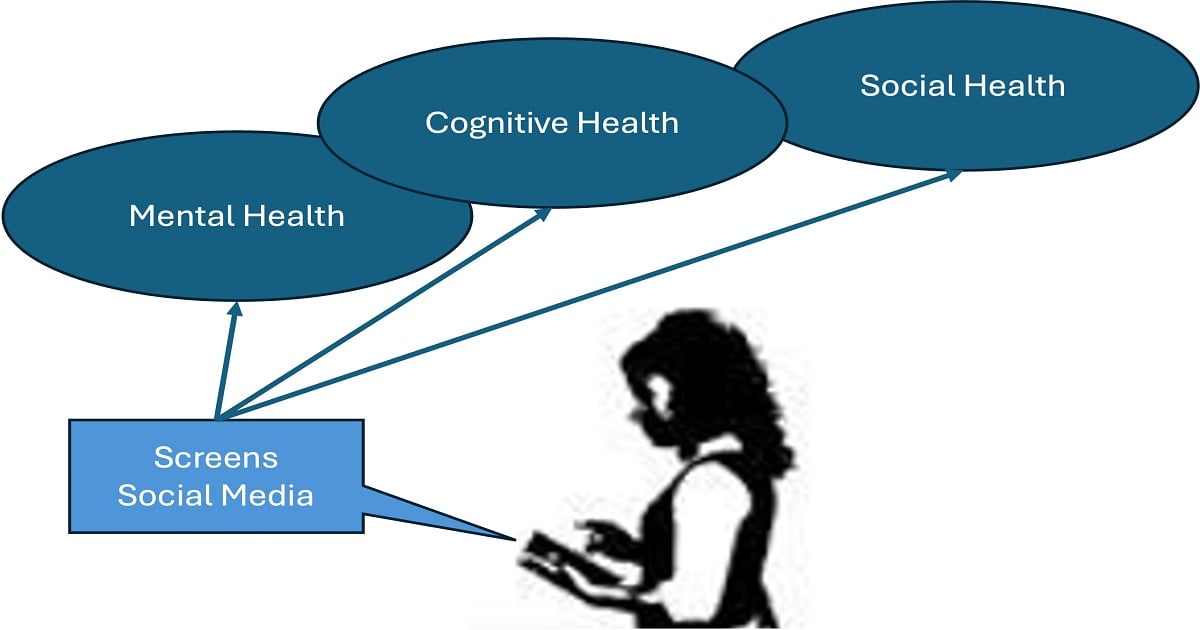- 2.1Impact Factor
- 3.8CiteScore
- 16 daysTime to First Decision
Effects of Screen Time on Children’s Mental, Social, and Cognitive Health
This special issue belongs to the section “Global Pediatric Health“.
Special Issue Information
Dear Colleagues,
We are pleased to invite contributions to our upcoming Special Issue which will focus on the multifaceted impact of screen use and social media on the mental, social, and cognitive health of children. This Special Issue aims to bring together cutting-edge research and comprehensive reviews that explore how digital media consumption influences various aspects of child development.
Scope and Topics:
- Mental Health—examining the effects of screen time, social media, and gaming on children’s anxiety, depression, self-esteem, and overall emotional well-being.
- Social Health—investigating how digital interactions affect children’s social skills, peer relationships, play, and behaviors.
- Cognitive Health—analyzing the impact of screens, social media, and gaming on attention spans, academic performance, cognitive development, curiosity, creativity, wonder, and learning processes.
We welcome original research articles, reviews, systematic reviews, meta-analyses, and case studies that provide insights into both the potential risks and benefits associated with screen use among children. Submissions that offer innovative solutions, strategies for promoting healthy digital habits, and guidelines for parents and educators are highly encouraged.
Dr. Ana Maria Abreu
Guest Editor
Manuscript Submission Information
Manuscripts should be submitted online at www.mdpi.com by registering and logging in to this website. Once you are registered, click here to go to the submission form. Manuscripts can be submitted until the deadline. All submissions that pass pre-check are peer-reviewed. Accepted papers will be published continuously in the journal (as soon as accepted) and will be listed together on the special issue website. Research articles, review articles as well as short communications are invited. For planned papers, a title and short abstract (about 250 words) can be sent to the Editorial Office for assessment.
Submitted manuscripts should not have been published previously, nor be under consideration for publication elsewhere (except conference proceedings papers). All manuscripts are thoroughly refereed through a single-blind peer-review process. A guide for authors and other relevant information for submission of manuscripts is available on the Instructions for Authors page. Children is an international peer-reviewed open access monthly journal published by MDPI.
Please visit the Instructions for Authors page before submitting a manuscript. The Article Processing Charge (APC) for publication in this open access journal is 2400 CHF (Swiss Francs). Submitted papers should be well formatted and use good English. Authors may use MDPI's English editing service prior to publication or during author revisions.
Keywords
- screen time
- social media
- mental health
- cognition
- social skills

Benefits of Publishing in a Special Issue
- Ease of navigation: Grouping papers by topic helps scholars navigate broad scope journals more efficiently.
- Greater discoverability: Special Issues support the reach and impact of scientific research. Articles in Special Issues are more discoverable and cited more frequently.
- Expansion of research network: Special Issues facilitate connections among authors, fostering scientific collaborations.
- External promotion: Articles in Special Issues are often promoted through the journal's social media, increasing their visibility.
- e-Book format: Special Issues with more than 10 articles can be published as dedicated e-books, ensuring wide and rapid dissemination.

